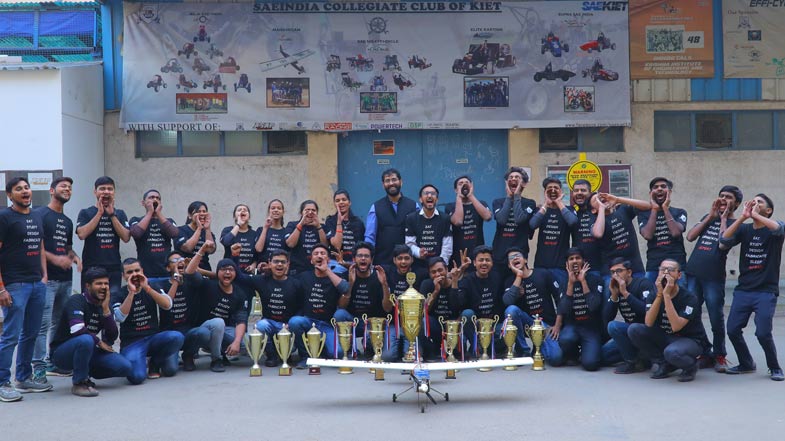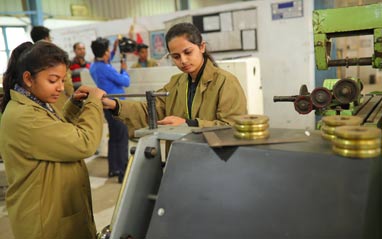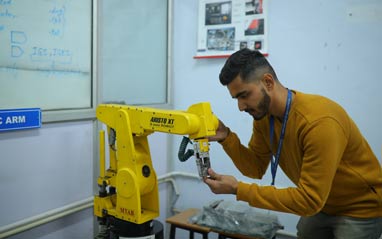Mechanical Engineering
About
Vision
To become a preferred department providing innovative and research-oriented education in Mechanical Engineering for addressing global challenges.
Mission
- To impart quality professional education through innovative teaching learning.
- To inculcate cutting edge professional skills for developing industry ready engineers.
- To foster research, innovation, and entrepreneurial environment for sustainable development of global community.



Programme Educational Objectives (PEOs)
- PEO:1: Address real-world problems by delivering innovative, efficient, and sustainable solutions.
- PEO:2: Strive for excellence in corporate, research, & higher education to enhance professional career on a global platform.
- PEO:3: Demonstrate leadership & entrepreneurial skills.
Programme Outcomes (POs)
- Engineering knowledge: Apply the knowledge of mathematics, science, engineering fundamentals, and engg. specialization to the solution of complex engineering problems.
- Problem analysis: Identify, formulate, research literature, and analyze engineering problems to arrive at substantiated conclusions using first principles of mathematics, natural, and engineering sciences.
- Design/development of solutions: Design solutions for complex engineering problems and design system components, processes to meet the specifications with consideration for the public health and safety, and the cultural, societal, and environmental considerations.
- Conduct investigations of complex problems: Use research-based knowledge including design of experiments, analysis and interpretation of data, and synthesis of the information to provide valid conclusions.
- Modern tool usage: Create, select, and apply appropriate techniques, resources, and modern engineering and IT tools including prediction and modeling to complex engineering activities with an understanding of the limitations.
- The engineer and society: Apply reasoning informed by the contextual knowledge to assess societal, health, safety, legal, and cultural issues and the consequent responsibilities relevant to the professional engineering practice.
- Environment and sustainability: Understand the impact of the professional engineering solutions in societal and environmental contexts, and demonstrate the knowledge of, and need for sustainable development.
- Ethics: Apply ethical principles and commit to professional ethics and responsibilities and norms of the engineering practice.
- Individual and team work: Function effectively as an individual, and as a member or leader in teams, and in multidisciplinary settings.
- Communication: Communicate effectively with the engineering community and with society at large. Be able to comprehend and write effective reports documentation. Make effective presentations, and give and receive clear instructions.
- Project management and finance: Demonstrate knowledge and understanding of engineering and management principles and apply these to one’s own work, as a member and leader in a team. Manage projects in multidisciplinary environments.
- Life-long learning: Recognize the need for, and have the preparation and ability to engage in independent and life-long learning in the broadest context of technological change.
- PSO-1: Develop expertise in advanced automotives.
- PSO-2: Acquire expertise in Computer Aided Designing and Manufacturing domain
